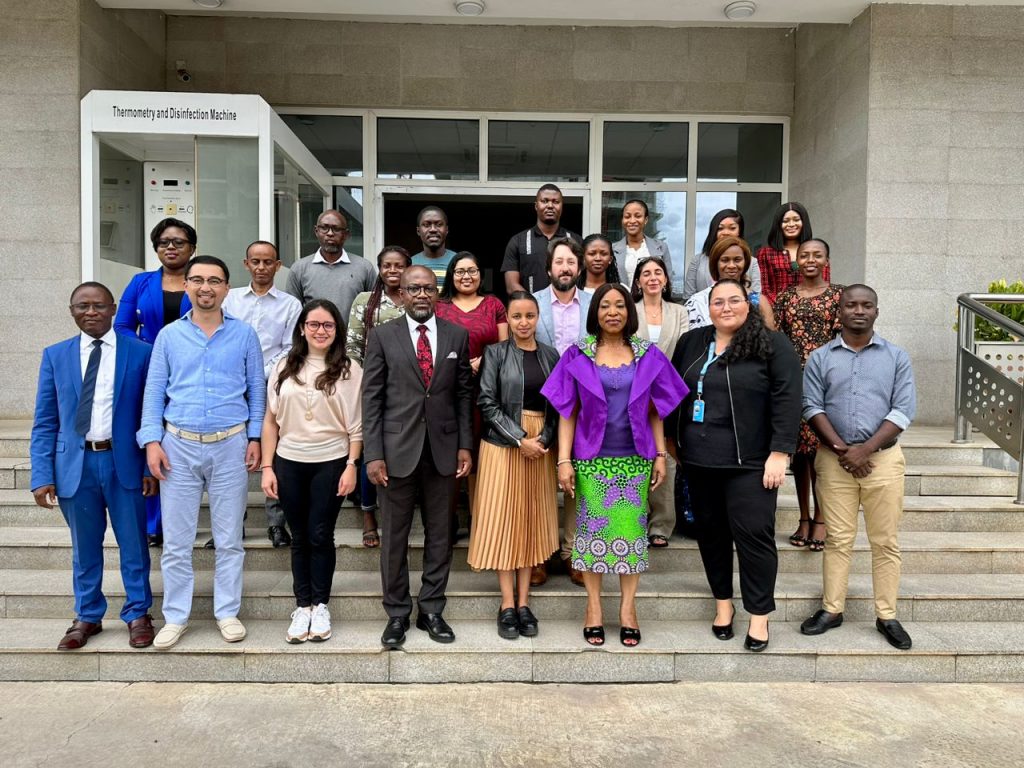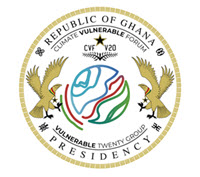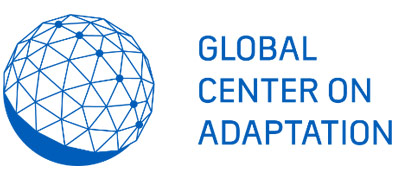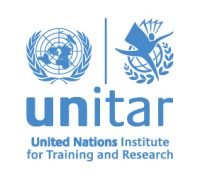
2023 FELLOWS
Ms. Angela Ebeleke
Ms. Angela Ebeleke is a National Gender and Climate Change Focal Point (NGCCFP) at the UNFCCC for the Democratic Republic of the Congo. Additionally, she also coordinates the Gender Department of the Dr. Ibenge Foundation. Recently, Ms. Ebeleke was appointed as a Course Guide by the Women Environment & Development Organization (WEDO). As a Course Guide, she contributes to facilitating virtual and in-person training for women climate negotiators for the least developed countries. Furthermore, she also works as a Phlebotomist and Manager at a corona test center aiding in the fight against the pandemic. Angela’s purpose on Earth is to implement solutions to obtain a healthier population and planet.
Angela Ebeleke
Mr. Derek Sarfo-Yiadom
Mr. Derek Sarfo-Yiadom is a Programme Officer at the Climate Change and Ozone Unit, a department at the Environmental Protection Agency (EPA) under the Ministry of Environment, Science, Technology and Innovation in the Republic of Ghana. He is a final year PhD candidate at the Institute of Environment and Sanitation, University of Ghana where he is currently conducting research on the Carbon Footprint in the Construction Industry. Areas that are of particularly heightened interest to him within the climate field include but are not limited to international policymaking, research and technical development, and international climate diplomatic negotiations.
Derek Sarfo-Yiadom
Mr. Eyob Tenkir
Mr. Eyob Tenkir is a Senior Environmental Safeguard Specialist at the National REDD+ Secretariat at Ethiopia’s Forest Development where he has worked since 2013. His educational background includes a MSc in Botanical Science and a BSc in General Forestry. As part of his work at the National REDD+ Secretariat, he has participated in and developed the National REDD+ Strategy, the REDD+ Consultation and Participation Document and the preparations of the Grievance Redress Mechanism for REDD+. He has furthered his expertise with various training in Forests and Climate Change, Forest and Biodiversity Data Analysis, Integrated Environmental Planning & Management, and Terrestrial Carbon Training.
Eyob Tenkir Shikur
Mr. Moudjahid Akorédé Wabi
Mr. Moudjahid Akorédé Wabi is a Technical Assistant and the Alternate National Focal Point to the UNFCCC at the Ministry of Living and Sustainable Development in Benin. After completing a diploma in Agricultural Engineering from the University of Abomey-Calavi in Benin, he went on to attain an advanced Master’s degree in the Management of Livestock and Crop Resources in a Tropical Environment from the University of Liege in Belgium. Having spent over ten years in the climate negotiation processes, as part of his role as a Junior Negotiator he has worked on institutional framework and projects related to the Kyoto Protocol, Article 6 of the Paris Agreement, Nationally Determined Contributions (NDCs), climate finance and adaptation. Wabi’s areas of expertise include agriculture, climate change adaptation/mitigation and carbon markets.
Moudjahid Akorédé Wabi
Dastan Abdyldaev
Policymaker and consultant with about 20 years of experience and track record in Kyrgyzstan’s Government key positions as well as national projects. Experience on variety sectors with major expertise in climate change, climate finance, environment, sustainable development, clean energy policies as well as public administration and international relations. Recently served as a Director at Climate Finance Center of the Ministry of Natural Resources and Environment of Kyrgyzstan, Focal Point to the UNFCCC, COPs, SBs, GCF, CIFs, CTCN, CVF-V20-GPG and NDC Partnership. Prior to that, for more than 10 years worked as an Expert at the Prime Minister’s Office of Kyrgyzstan.
Dastan Abdyldaev
Sofía Vargas-Lozada
Sofía Vargas-Lozada is one of AILAC’s lead finance negotiators and is the advisor for climate and nature finance at the Ministry of Foreign Affairs of Colombia. Her professional experience has also focused on the fields of development finance and development cooperation at the national and multilateral levels. Ms. Vargas holds a Master’s Degree in International Development from Sciences Po, Paris, and two Bachelor’s degrees, in Political Sciences and International Business Management, from the University of La Sabana in Colombia.
Sofía Vargas-Lozada
Genevieve Jiva
Genevieve Jiva is from Suva, Fiji. She has graduated with a Bachelor of Arts Degree in History and Politics, and has completed a Postgraduate Diploma in Diplomacy and International Affairs from the University of the South Pacific. She has been actively participating in the climate policy space since 2015, including as a researcher, civil society representative and youth delegate. She is currently working at Fiji’s Office of the Prime Minister, with a focus on international relations and climate change.
Genevieve Jiva

Gerty Pierre
Ms. Gerty Pierre works as the head of the Climate Change Department in the Haitian Ministry of the Environment. Gerty is a biologist by profession and a current doctoral student in biological sciences with expertise in environmental health. In her role in the Haitian government, she has contributed to the development of policy briefs and strategic documents. The Climate Change Department works to produce decision support tools that facilitate planning for adaptation and mitigation of Climate Change as well as the development of national climate change policies. Her particular focus in environmental topics has been on the themes of climate adaptation and mitigation.
Gerty Pierre
Hamid Abakar Souleymane
Hamid Abakar Souleymane currently serves as National Focal Point of IPCC for Chad and 2nd National Focal Point for UNFCCC. He is recently nominated as IPCC Task force Bureau Member as African Group representative in IPCC 7th Assessment Cycle and served as CTCN advisory board member representing Least Developed Countries (LDCs) and TFB member for the IPCC AR6. He is also the founder of Association Arbre du Sahel pour le Developpement Durable et la Bonne Gouvernance et lutte contre le Changement Climatique. He recently graduated from University of N’Djamena at the department of atmospheric physics with a Master II degree in Atmospheric physics, Climate and of Environment. His research consisted of statistical analysis of the monthly averages of the maximum air temperature in N’djamena from 1961 to 2020.
Hamid Abakar Souleymane
Overview
The Climate Vulnerable Forum (CVF) is re-launching its “Capacity-Building Fellowship” for 10 participants from its member countries in collaboration with the Global Center on Adaptation (GCA) and the United Nations Institute for Training and Research (UNITAR) as part of the CVF-V20 Fellowship Program. The program strengthens fellows’ capacities and contributes to national efforts to pursue strategic forum priorities on climate change in CVF member countries and in international policymaking. In addition, the participants are supported to be better positioned to raise awareness of the challenges and opportunities developing countries face and present as a result of climate change, in addition to assisting the CVF in advancing its priorities within UN processes including the UNFCCC and COP meetings. The CVF “Capacity-Building Fellowship” goal is to promote and drive ambitious climate action and to mobilize international support for climate threatened nations.
The CVF “Capacity-Building Fellowship” first cohort included 15 fellows from CVF member countries including Benin, Bhutan, Cambodia, Costa Rica, Democratic Republic of the Congo (DRC), Ethiopia, Ghana, Guyana, Haiti, Liberia, Madagascar, Maldives, Papua New Guinea, Sri Lanka, and Tunisia. The biographies of the 2022 fellows are available here, as well as articles written in 2022 that can be found on the CVF blog here. Five of the fifteen fellows were given an extension to serve as trainers of trainers.
Scope of the Fellowship
Member countries of the CVF are extremely vulnerable to climate change-induced catastrophes, despite their insignificant contribution to the causes and highly restricted capabilities for responding to climate challenges compared to larger, wealthier, and more responsible nations. Building the capacities of stakeholders in the area of climate change is one of many possible mechanisms to address such imbalances. Thus, the goal of this Fellowship is to ensure that CVF government representatives can benefit from increased opportunities to understand, engage in and master representation and policy development activities on climate change.
The fellows will experience real-life climate change negotiations through sponsored participation in key international climate change conferences. In preparation for these events, they will take part in the following training sessions conducted by UNITAR, alongside the 5 selected fellows from the initial CVF Capacity-Building Fellowship and the 2022-2023 CVF youth fellows:
- A comprehensive training on relevant climate change policy topics (e.g., mitigation, adaptation, finance, loss and damage, Paris Agreement compliance, UNFCCC historical development, structure and procedures, international climate finance access, national policy-making on climate change, policy mainstreaming), and a UNFCCC negotiation simulation workshop;
- A media training on the skills required to disseminate information to a wider international audience outside of policy circles.
- A platform for publishing the fellows’ research related to climate change, and participation in a South-South community of climate change government representatives from the CVF to share and exchange experiences and knowledge;
- A real-life experience of climate change negotiations through sponsored participation in UNFCCC COP 28, and possibilities to join other key international climate change conferences;
- A Professional UNITAR Certificate of Recognition upon completion of the Fellowship
Learning Objectives
The Fellowship will last for one year, with a planned time frame from April 2023 to February 2024. Subject to funding, participation in activities and other criteria, possibilities to extend the program for future years or to offer extensions will also be explored. At the end of the Fellowship, the participants are expected to meet the below objectives:
- Understand the international climate change negotiation process;
- Adopt the lessons learned from global climate change fora to support the implementation of national climate policies;
- Gain the knowledge and skills needed to assist governments in accessing climate finance;
- Equip with the necessary communication skills to use media as a platform to raise awareness on the challenges posed by the changing climate.
2023 Fellowship Activities
The following activities are planned for the year 2023:
- UNITAR comprehensive training on climate change diplomacy, negotiations and media skills (TBC);
- UNITAR training on selected climate change topics, in preparation for the SB58 (TBC);
- Sponsored participation to the SB58 (Bonn, Germany – 5-15 June 2023);
- UNITAR training on selected climate change topics, in preparation for the COP28 (TBC);
- Sponsored participation to the COP28 (United Arab Emirates – 30 November to 12 December 2023);
- Publication of the fellows’ reflections on the expectations and outcomes of each UNFCCC sessions
- Any other activity organized by the Forum.
In addition, the fellows will be invited to attend the CVF main meetings (e.g., regional consultations, senior officials’ meeting, high-level meeting) and to participate in any other activity organized by the Forum. Concept notes for each activity will be shared in due course.
Conditions of Participation
Governments of CVF member countries are invited to nominate an eligible candidate with climate change expertise from a relevant ministry, international organization, think tank, or research institution. Applicants must meet the following requirements:
- Citizen and government official of a CVF member country (for citizens but not government officials: nomination by the government including for UNFCCC accreditation). Full list of CVF members can be found here;
- Demonstrated interest in climate change, environmental protection and/or sustainable development;
- Demonstrated junior to mid-level experience (ideally 5-10 years experience) in international affairs, public policy and/or development, including climate change, environmental protection and/or sustainable development;
- Motivated to follow the training sessions organized throughout the year, both online and in-person (subject to pandemic and/or other travel restrictions in effect);
- Willing to travel abroad to attend various international negotiations on climate change and on average to dedicate 1-2 days per month to Fellowship activities (aside UNFCCC meetings and UNITAR trainings);
- Committed to working and sharing information with its national government and other stakeholders after the completion of the Fellowship;
- Proficiency in English.
How to Apply
Please submit your CV and Cover Letter in English, explaining your interest and motivation for the CVF “Capacity-Building Fellowship” at [email protected] by 15 March 2023. Places will be allocated on the basis of interest, gender, and regional distribution, and priority will be given to government officials. Only successful candidates will be invited to an interview at the end of March 2023, and a support letter from your government will be requested and is compulsory to join the fellowship.
Background Information on the CVF
The CVF is a South-South cooperation platform enabling countries highly vulnerable to climate change to act together to deal with this historic global challenge across all world regions. The CVF is a voluntary, non-treaty organization for vulnerable developing countries specifically focused on climate change action and policy. It represents 1.5 billion people worldwide and is made up of 58 members from Africa, Asia, the Caribbean, Latin America, the Middle East, and the Pacific. The Maldives, along with ten other countries, founded the CVF in Male’ in November 2009. For an ordinary period of two years, the Forum is chaired by a rotating chair, with Ghana currently chairing for the period 2022-2024. The CVF also has dedicated platforms of cooperation for its Ministers of Finance (the V20) and for parliamentarians (the CVF Global Parliamentary Group). More information is available on the CVF website: www.thecvf.org.



